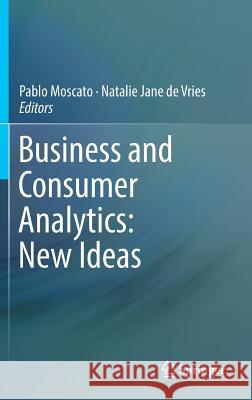Business and Consumer Analytics: New Ideas » książka
topmenu
Business and Consumer Analytics: New Ideas
ISBN-13: 9783030062217 / Angielski / Twarda / 2019 / 1005 str.
Kategorie:
Kategorie BISAC:
Wydawca:
Springer
Język:
Angielski
ISBN-13:
9783030062217
Rok wydania:
2019
Wydanie:
2019
Ilość stron:
1005
Waga:
1.58 kg
Wymiary:
23.39 x 15.6 x 5.23
Oprawa:
Twarda
Wolumenów:
01
Dodatkowe informacje:
Wydanie ilustrowane











